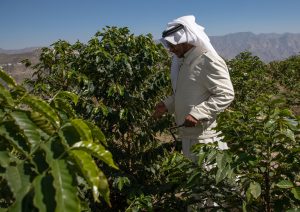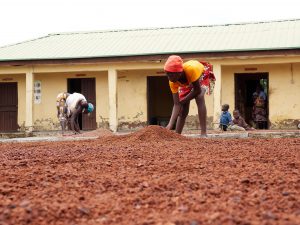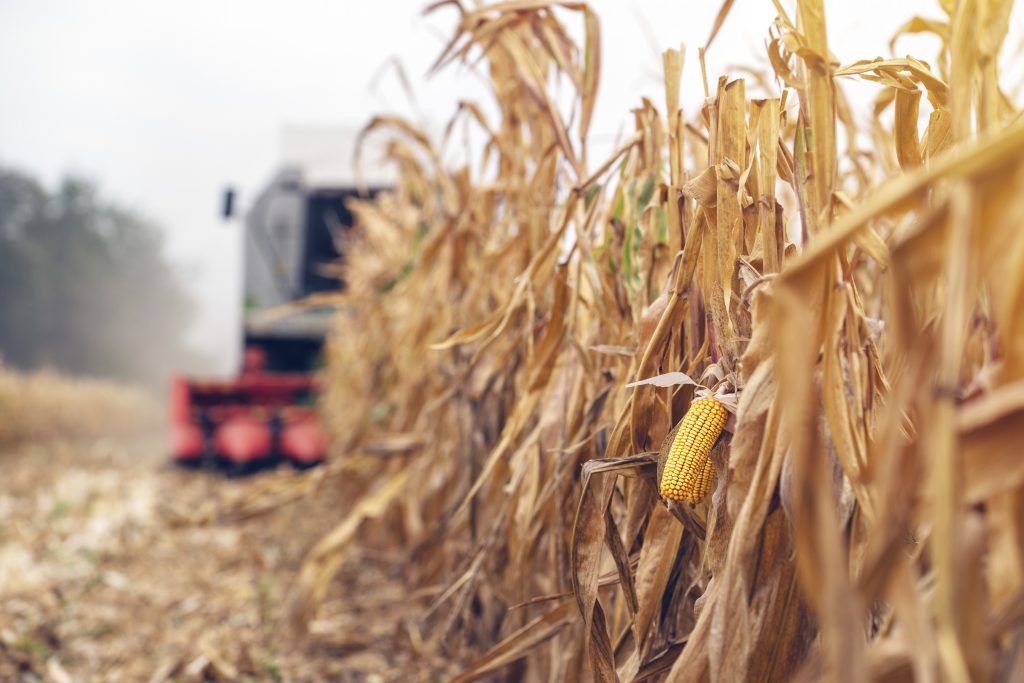São Paulo – When the novel coronavirus pandemic led to closed factories and slower cargo movements, between March and April, countries that rely on food imports ramped up their stockpiles of staples such as protein and grains. Some began to consider or fast-tracked already ongoing projects to produce their own food, in a long-term effort to no longer depend on imports and to gain control over inventories. But catering to domestic food needs isn’t always feasible.
The drive for food security has been at the top of the list of priorities for Saudi Arabia and the United Arab Emirates for a few years now. The UAE are investing in research and food processing, and there’s even a vertical vegetable farm in the emirate of Sharjah. Saudi Arabia is earmarking an additional USD 3.2 billion to its Rural Development Program in the years ahead, with targets including the ability to process more coffee.

Those projects were already underway, but the pandemic provided a new thrust. Last May saw Saudi Arabia buy a stake in a rice supplier in India. A few months ago, the UAE purchased a 50% interest in one of the Middle East’s leading agribusiness companies, whose business includes producing fruit, animal feed, rice and flour. In both cases, the investment was made by state-run organizations.
An associate professor at the University of São Paulo’s Luiz de Queiroz School of Agriculture (Esalq-USP) and a researcher at the Center for Advanced Studies on Applied Economics (Cepea), Sílvia Helena Galvão de Miranda argues that crises notwithstanding, all countries have food security policies in place. However, concerns are bigger at times of turmoil. She believes nations tend to seek ways to increase domestic food production.
“It’s a reality that some countries, and even large portions of the world need to import food in order to keep their populations supplied. Difficulty in structuring out production and distribution systems are one of the causes for that in several countries in Sub-Saharan Africa, for instance. Elsewhere, such as in Middle East countries, there are natural limitations in terms of land and water availability,” she says.
The coordinator of the Business Administration course with an emphasis on Agroindustrial Systems at the Lagoa do Sino campus of the Federal University of São Carlos (UFSCar), Fábio Grigoletto claims that producing food is a challenge that cannot be surmounted through a nation’s simple desire or even strategy.

The professor points out that producing food isn’t a simple task. It involves a complex system which comprises farmers, farming input suppliers, industry, import-export companies, retailers, and consumers. “These systems take time to build, and they depend on public and private investment in research and infrastructure, which is also time-consuming to do, if it gets done at all.”
Grigoletto notes that African nations like Nigeria, Rwanda, South Africa, Ghana, Côte d’Ivoire and Kenya boast predominantly smallholder farming systems, which have been becoming more tech-intensive lately.
“Arid and temperate climates are best-suited to niche production chains, such as dates and cereals, in areas near the Red Sea, in Saudi Arabia, and cereals and dairy farming in organic production systems, in Denmark. In the former case, the consolidated production chains currently in existence cannot fully fulfill the needs of populations, and that makes Arab countries the leading destination for animal protein– beef and poultry – produced in Brazil. In the case of Denmark, production is primarily intended for domestic consumption. I would argue that out of the countries mentioned, Arab countries experience the most trouble producing food, as a result of climate-related issues,” says Grigoletto.
A former secretary of Foreign Trade at Brazil’s Ministry of Development, Industry and Foreign Trade and a partner at consulting firm BMJ Consultores Associados, Welber Barral claims that the early months of the pandemic sparked worldwide fear of shortages. That led some countries to build up their stockpiles, and that drove commodity prices up. “By July, people realized that the shortage didn’t come. There was no food crisis to speak of. What happened was a crisis due to lack of income. The pandemic showed that the world has great logistical resilience,” says Barral. Grigoletto also warns of hunger caused by poverty, and he brings up Brazil as a case in point: despite being one of the biggest food-producing countries in the world, 10 million people were hungry in the country, according to the Household Budgets Survey released by the Brazilian Institute of Geography and Statistics (IBGE) on September 17.
Opportunities for Brazil

And where does Brazil, one of the biggest food producers in the world, stand in this picture? “When it comes to food security, this is still a huge challenge for the country itself, not only as an exporter of , but also when it comes to supplying its population with food in a more equanimous way, including from the perspective of reducing regional discrepancies in social indices that relate to diet and health. Internationally speaking, the challenge, in addition to achieving ever-growing productivity levels to ensure competitive prices in external markets, is to coordinate the production system in order to establish an image of an agricultural producer and exporter that is associated with sustainability,” says Miranda.
Barral, in turn, remarks that Brazil is admittedly a leader in food production and the development of agribusiness technology. There are very aggressive and dynamic companies that have once attracted and may once again attract investors. The Chinese, he says, focus their investment efforts in agricultural production infrastructure. The Saudi Agricultural and Livestock Investment Company (SALIC) is a major stakeholder in the Brazilian meat packer Minerva Foods.
“I see a half-full, half-empty glass. Brazil has a high level of industry technology, and it is poised to become the biggest food-producing country in the world. It has high-quality product and a lofty reputation. The glass is half-empty, however, when it comes to the environmental issue, and that is very worrisome when it comes to the European Union. It is damaging to the country’s image, as well as the environment, in the long run. Besides, agribusiness is the most protectionist and the most protected of all industries in the world. Brazil is at risk of being targeted by protectionist measures and non-tariff barriers. It needs to beware, to fight at the World Trade Organization (WTO), to step up to the challenge, he says.
Translated by Gabriel Pomerancblum




